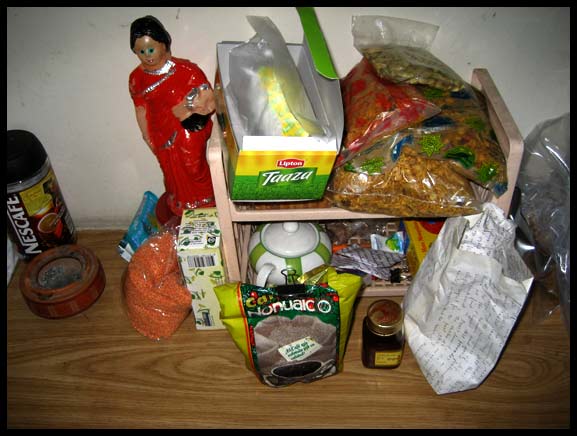 |
||
i love to we feral Feral Trade is an artist-run grocery business, trading goods over social and cultural networks. The process is called Feral Trade to distinguish it from other recognised protocols such as Fair or Free. The project was established in 2003 to deliver a socially networked supply of coffee to the Cube Microplex in Bristol, a cinema and art space which runs on the rare economy of no core funding and an all-volunteer workforce. The bar is a vital revenue source for the Cube, as well as a platform for other activities1. The first Feral Trade of 50 kg coffee direct from its farmers in El Salvador, was arranged by email, SMS and mutual acquaintances and shipped to the Cube in 2003. Feral Trade has since branched out into an underground freight network with trade routes across the UK, Europe, Middle East, Asia and the Americas. The main unit of mobility is the social or cultural bag. Products are run in hand baggage, avoiding official channels of freight and distribution to instead engage friends, colleagues, curators and other artists as mules, to carry consignments intercity. All activity is logged on the project website1 from where the movements of arrange of groceries can be monitored. Aside from the now 5-year trade in coffee, Feral Trade product line has grown to include tea, sweets, turmeric, grappa, electric rice cookers and wild grown antidepressants: goods which if not strictly necessities are still entangled in the needs of the networks, both cultural and social. In attempting to run products via other means than the savage currents of the open market, Feral Trade reconsiders the art world as energy source, harnessing the surplus potential of social and cultural travel for the practical movement of goods. Freight methods have included visiting lecturer, film transport, polar expedition, long distance romance, custody battle, vacation, 1. www.feraltrade.org/courier symposium, residency and biennial travel. However in a climate of rising tensions over transportation resources, the option for an off market freight system remains ever shady. The question “did you pack this bag yourself?” becomes even more loaded; and a coffee shipment dispatched as unattended bag on Virgin Trains cross-country can expect detonation if its passengerless transit is detected. Feral Trade attempts further communications with the art world by entering the food chain of other institutions as a vendor. Shipments of office coffee have successfully entered the staff collections of otherwise impregnable palaces (Victoria & Albert, London; Tate St Ives) and smaller collectives of peers (HTTP Gallery, London; Variant Magazine, Glasgow; Foam, Brussels; Materials & Applications, Los Angeles). Shipments are small but can carry weight in the symbolic realm, as regular deliveries open up wormholes between diverse institutions, non-combat space for other encounters, objects and information to transit. As an artist-run business, Feral Trade strategises to escape the insistence on production of novelty by persistent activity. Its interest lies in the long-term production of trade relations via repeat deliveries: the slow accretion of transit data, extraneous and mutual interests. As an economic model, it exits the domain of funded public art to rely instead on its own investment, incremental income from the itemised sale of goods, and the option – perhaps cataclysmic – to test a unit of currency for transit and exchange for cultural circuits should other funding systems go belly up.
| ||
